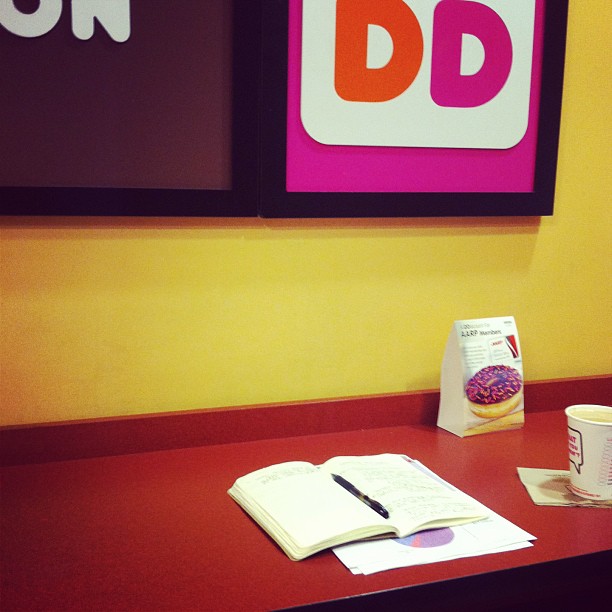
The Importance of Process
[flickr id=”8452492836″ thumbnail=”medium” overlay=”true” size=”original” group=”” align=”none”]
Have you ever trained for a race? I once signed up for a 5k despite never having run in my life. I was the kid walking the entire mile in high school. Anyway, I ran almost every day, and by my third race, I was down to 31 minutes. I think that’s pretty good for someone who’s never run before. Then I stopped.
The next time I ran (six months later), it was like starting all over again. I was so mad at myself.
And that is how I feel right now.
I have a story due tomorrow. It’s my first story since winter break, so all in all, I think I went 50 days without reporting or writing. I probably should have done something to stay in practice during that time, because I am kicking myself now.
I see a difference in my process though. Maybe it’s because I had some distance from what I learned first semester. The difference is I’m actually developing a process.
So far it looks like this:
Organization
• Write a thorough beat memo.
• Figure out which source you should call first. For instance, if you’re writing about a bill, call the representative who sponsored the bill before you call anyone else. You might be thinking “duh,” but be nice—some people are new to reporting.
• Keep track of which sources you called and when.
Think
• Always be thinking.
• Once you start interviewing, the story will start to take shape and often will veer off in some unexpected direction, so be flexible and keep thinking.
[flickr id=”8451389657″ thumbnail=”medium” overlay=”true” size=”original” group=”” align=”none”]
Organization
• Stay organized. It all starts to get crazy once sources call you back at random times and you have to duck into some random Dunkin Donuts because you’re trekking through the city or standing on the train.
• Always have your notes handy and organized in a way that works for you. Sources don’t always call you back, but when they do, it’s pretty much the worst possible time. Be ready.
• Outline your story. I’m not talking fifth grade roman numeral style, just some way of chucking everything out into sections so you know what should go where.
• Sometimes I write a separate page of all the facts I’ve acquired and who those facts are attributed to. Then I lay it side-by-side with my outline, or even better, fill the outline in with those facts.
Space
• Know when to step away and for how long. Sometimes giving yourself space from the story gives you clarity you can’t achieve any other way.
This is how my process is taking shape, but I expect it to change as I grow as a journalist. The thing is, everyone’s process is different, and you can only figure it out by reporting and writing over time.
The one thing that can’t be compromised is organization. What are some good practices you have to stay organized while working on a story?
Anyway, back to my story.
